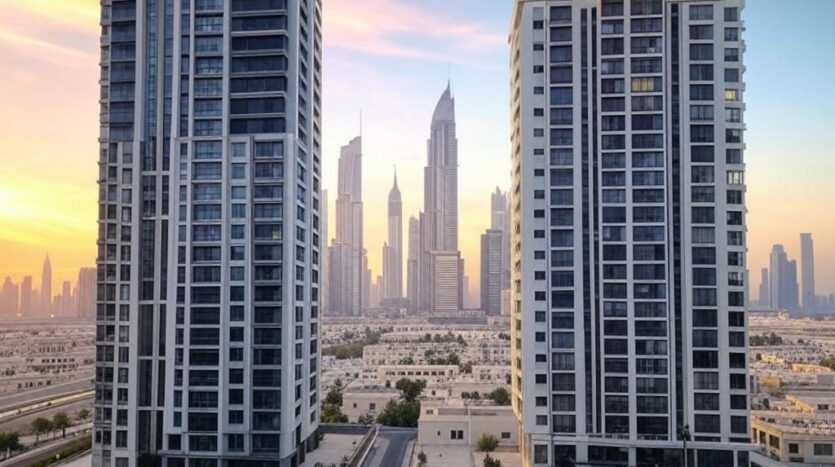Freehold vs. Leasehold in Dubai: Key Differences Explained
Introduction
Are you considering buying property in Dubai but feeling overwhelmed by terms like “freehold” and “leasehold”? You’re not alone—many investors and homebuyers struggle to understand these concepts, which can impact their ownership rights and long-term plans. This post will break down the difference between freehold and leasehold properties in Dubai, helping you navigate the market with confidence. Whether you’re looking to invest or settle down, knowing these distinctions is key to making the right choice.
What Are Freehold and Leasehold Properties?
Freehold Properties: Full Ownership
Freehold properties in Dubai mean you own the property and the land it sits on outright. This gives you the freedom to buy, sell, rent, or modify the property as you wish, with no time limits.
- Who Can Buy? Foreigners can purchase freehold properties, but only in designated areas like Dubai Marina, Downtown Dubai, or Palm Jumeirah, as set by the Dubai Land Department (Dubai Land Department).
- Benefits: Ideal for long-term investment, as you have full control and can pass it to heirs. It also qualifies for residency visas if the property value meets certain thresholds (e.g., AED 1 million for a 2-year visa).
- Example: Buying a villa in Emirates Hills gives you complete ownership, allowing you to rent it out or renovate it freely.
Leasehold Properties: Time-Limited Usage
Leasehold properties mean you have the right to use the property for a fixed period, typically 99 years, but you don’t own the land. At the end of the lease, the property reverts to the freehold owner.
- Who Can Buy? Leasehold is often used by developers to offer long-term leasing options, and foreigners can acquire these rights, especially in areas not designated as freehold.
- Benefits: Lower upfront costs compared to freehold, suitable for those seeking temporary residency or rental income without full ownership.
- Example: Renting a luxury apartment in Business Bay on a 99-year leasehold basis is common for expats planning to stay for decades but not seeking permanent ownership.
Key Differences: A Quick Comparison
Here’s a table to summarize the differences:
| Aspect | Freehold | Leasehold |
|---|---|---|
| Ownership | Full ownership of property and land | Right to use for a fixed period (e.g., 99 years) |
| Foreign Ownership | Allowed in designated areas | Allowed, often for long-term leasing |
| Duration | Permanent | Time-limited (e.g., 99 years) |
| Flexibility | Can sell, rent, modify freely | Restrictions may apply, subject to lease terms |
| Cost | Higher upfront cost | Lower initial cost, recurring fees possible |
| Residency Visa | Eligible for investor visas | May not qualify for long-term visas |
Why Does This Matter for Buyers and Investors?
Understanding freehold vs. leasehold is crucial for your investment strategy. If you’re planning to stay long-term or pass the property to family, freehold is the way to go. For short-term gains or rental income without full commitment, leasehold might suit you better. For instance, a freehold villa in Jumeirah Golf Estates could be perfect for a family seeking a permanent home, while a leasehold apartment in Downtown Dubai might appeal to an investor looking for rental yields over 20 years.
Additionally, Dubai’s real estate market is dynamic, with freehold areas offering more stability for resale value, while leasehold properties can be riskier as the lease nears expiration. Always check with a reputable agent, like those listed on Property Finder, to ensure you’re making an informed decision.
Conclusion
In summary, freehold properties in Dubai give you full, permanent ownership, ideal for long-term investment and residency, while leasehold properties offer time-limited usage, better for temporary needs. Knowing these differences can save you from costly mistakes and help you choose the right property for your goals. Ready to explore your options? Comment below with your questions, or visit westgatedubai.com to learn more about buying property in Dubai!
FAQ Section
- Can foreigners buy freehold properties in Dubai?
Yes, foreigners can buy freehold properties, but only in designated areas like Dubai Marina or Palm Jumeirah, as per Dubai Land Department regulations. - How long does a leasehold last in Dubai?
Leasehold properties typically have a 99-year term, after which the property reverts to the freehold owner. - Which is more expensive, freehold or leasehold?
Freehold properties usually have higher upfront costs due to full ownership, while leasehold may have lower initial costs but could include recurring fees. - Can I get a residency visa with a leasehold property?
Generally, leasehold properties don’t qualify for investor visas, unlike freehold properties valued at AED 1 million or more. - What happens when a leasehold expires in Dubai?
At the end of the lease, the property reverts to the freehold owner, and you may need to negotiate renewal or vacate, depending on terms.



